Movie Review – All Kinds Of Awesome: Critical Analysis of the works of Michael Bay
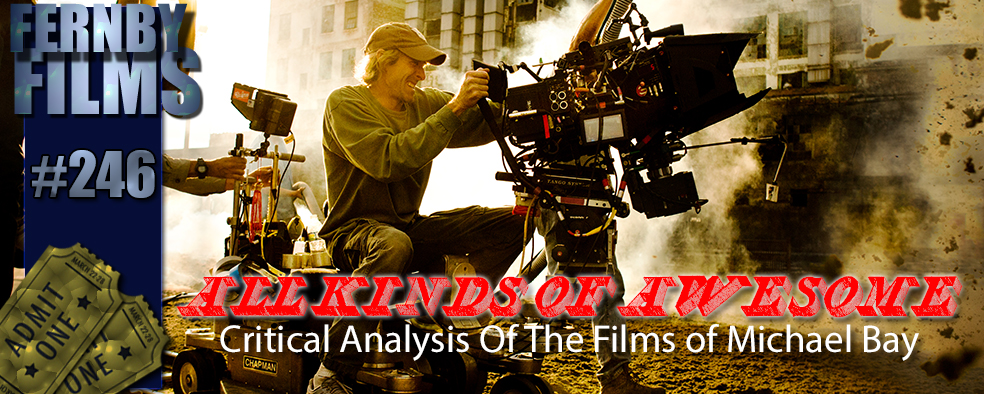
****************************
“No, I’m Miiiiike Looooooowry.”
When Michael Bay unleashed Bad Boys upon an unsuspecting world back in 1995, little did we all realise just what an impact the filmmaker would eventually have on Hollywood, and a legion of filmmakers since. Bombastic, explosive, filled with humor both lowbrow and slapstick, Bad Boys set the tone for Bay’s career as a purveyor of epic widescreen action.Today, many would class Bay as the cinematic equivalent of Dan Brown in literary circles, Bay’s films more inclined to explosions and destruction at the expense of things like, oh, logic and plot. Many critics have taken pot-shots at Bay’s work throughout the years, describing it as anything from “inane” to “intellectually offensive”, barely pausing to recognise the merits of Bays work.
Merits? you ask incredulously, jaw gaping at the mention of the word in the same breath as Michael Bay. Yes, I say merits, for they exist in Bay’s current oeuvre. Might be hard to imagine, but the point of this article is to try and balance the ledger in favour of Bay as a filmmaker, in spite of the enormous negative energy directed his way by critics and internet hacks alike. Rather than subscribing to the energy and fun Bay tries to bring to his projects, many people seem more content to jeer and mock a man who has more talent in his little finger than most do in their entire body. I like think the only reason Roland Emmerich made 2012 was to ensure he kept the title of having destroyed the most earthly real estate on screen; after all, who’d want Bay to hold that honour?
Okay, so I am an unashamed fan of Bay’s work; and considering two of my all time favourite films are his, it goes without saying that I could possibly be Bay’s biggest defender, or biggest apologist. For the longest time, Armageddon was my number one film, although this was supplanted more recently by Transformers, a film that showed me just how much the director had grown since Bruce Willis saved us all. I remember thinking that The Rock, in which Bay purported a political agenda regarding military veterans and their treatment by the government, was one hell of an action film, a tour de force in action cinema that gave us the now classic line from Sean Connery: “You’re best? Losers always whine about ‘their best’! Winners go home and f*** the prom queen!” To which Nicolas Cage retorts in his petulant way, “Carla was the prom queen!”. Such dialogue and snappy banter is a trademark of Bay’s films, although the quality of such scripting appears to have waned in recent years in order to accommodate more explosions and effects. Bay has attempted on at least two occasions to deliver more sobering, patriotic and hard-edged filmmaking, with Pearl Harbor, and The Island, the former which was critically mauled at the time of it’s release, and appears to have become a mere footnote in Bay’s resume to this date.
Critics have derided his filmmaking ability since he came of age in Armageddon, flexing his cinematic muscles while simultaneously exploding logic into testosterone-fueled oblivion. But are they justified in their bile towards one of the industries most successful directors. In terms of his bankability, Bay ranks up alongside Peter Jackson, Steven Spielberg and James Cameron for an ability to draw a crowd based upon his name alone. There are few directors working today who can claim such success. But if his film appear to herald a glimpse into the gaping maw of cinematic sewerage, as so many critics and fanboys seem to think, why do his films keep being successful? Think about it. Bay has never had a flop, although Pearl Harbor comes about as close as he ever has to one. Both Transformers films blew records out of the water, The Island was a success (if only in the home cinema market) and even Bad Boys II, a film which, to be honest, I didn’t like all that much, was a financial winner. A filmmaker who thrives on explosions and frenetic chases and gunplay must surely be at the lower tier of Hollywood elite, right?
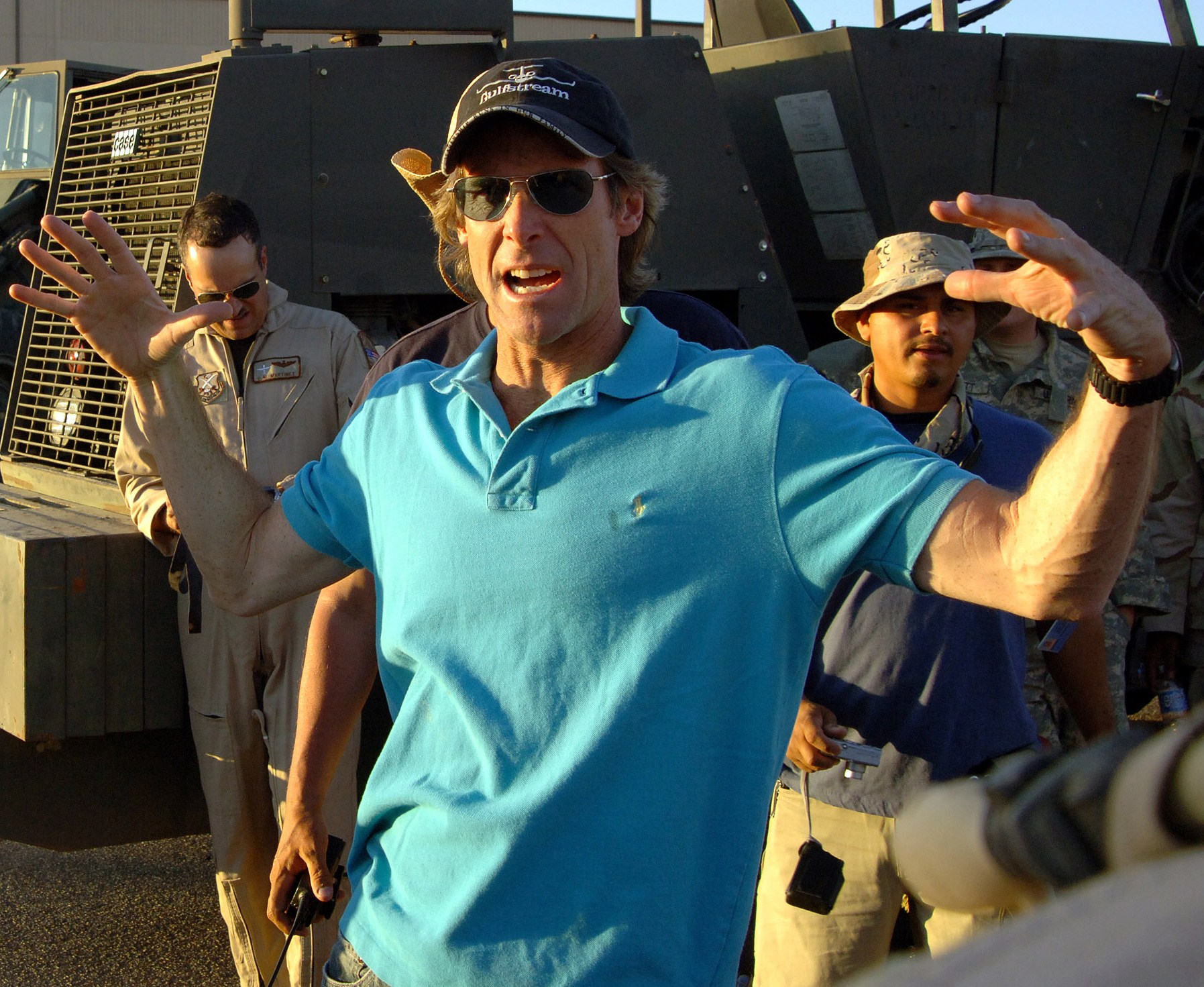
So how does a former music-video directing man-child go from directing Meatloaf in “I’d Do Anything For Love” to Transformers: Revenge Of The Fallen? What is the arc that takes us on this journey, and is it a good one, regardless of financial success? After all, here is a man famous for his on-set ferocity and bullish work ethic, both of which have garnered praise and condemnation from cast and crew on his films. Is a temperament like Bay’s a guarantee of success? Is it conducive to a good working environment, as long as the result is achieved? And what journey does Bay take us on over the course of his career to date? We’ll attempt to find out as we take a look at Bay’s films, his legacy and his failures.
“What kind of f***ed-up tour is this?”
It’s hard to imagine where Michael Bay would be if it weren’t for Will Smith and Martin Lawrence. With the release of Bad Boys in 1995, Bay transitioned from music video gun-for-hire to feature film with one swift kick of a Porche. Snappy dialogue, if it can be called that, a wonderful misfit chemistry between the two male leads, and a not-quite-so-hysterical performance from the normally awful Tea Leonie, made Bad Boys a palatable, violent, explosively funny film. Bay’s sense of style, some of his early trademarks, such as his low angle swing round “hero shot”, came to prominence even here. Bad Boys was a frenetic opening salvo from the promising director, under the producer tutelage of Jerry Bruckheimer and the late Don Simpson, who themselves were highly successful film purveyors in their own right. As Bay developed under Bruckheimer, he developed a muscular, jaw-clenching cinematic style, perhaps less akin to that produced by Richard Donner (who, with his enormously successful Lethal Weapon series, had become the de facto action-maestro of the 80’s and 90’s, to that point) and more like the old Asian cinema of the 70’s, a chop-socky approach with a hairy exterior, like the kind of film the Marlboro Man might make. Heady, ready, and dynamic, Bay had all the ingredients to making good action films. His style was obvious, and his ability to generate tension and action was seemingly first rate. However, the films success relied less upon Bay’s handy camerawork, and more on the dynamic Smith and Lawrence. While Will Smith has since gone on to bigger and better things, such as I Am Legend, I Robot, and even Seven Pounds, Martin Lawrence has produced dreck like Big Mamma’s House (and it’s sequel), as well as the pitiful Blue Streak, National Security, and the nadir of his career, Black Knight. But in Bad Boys, and to a lesser extent, Bad Boys 2, Smith and Lawrence sparkle, their dynamic wit and dialogue more to do with Smiths sharp observational humor and Lawrence’s ability to mug to the camera. And if Smith and Lawrence hadn’t been so good together, would Bay have been as successful as he now is? Neither really “act” here, they simply say their lines and let Bay’s camera do all the work.
This, perhaps is indicative of why Bay is successful. He works the camera, gets into the scene and fills the frame with an energy unmatched by other modern directors today. In Bad Boys, he uses a full frame aspect (the only time in his feature directing career he would do so) to great effect. While the budget of Bad Boys is inherent in almost every sequence compared to Bay’s later works, the low-rent background of Bay’s initial feature shows just what he’s capable of with a smaller budget. Perhaps, in hindsight, a more restrictive producer should have kept his budgets more in check for longer. More on this later.
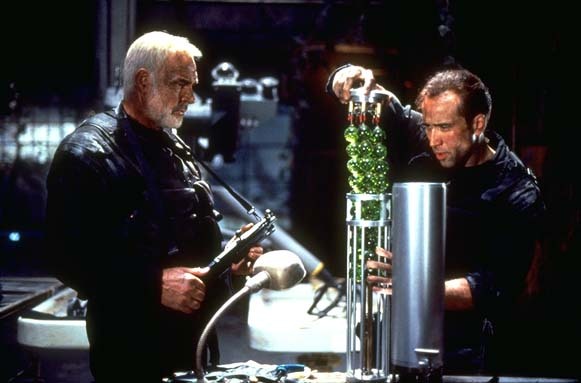
Following up Bad Boys, Bay landed the casting coup of the 90’s, luring a slowly retiring Sean Connery to the sturm und drang action of The Rock. Coupled with Nicolas Cage and Ed Harris, The Rock became an instant hit upon it’s release in 1996, the ludicrous script and insane action plot keeping audiences enthralled throughout. Cage, somewhat of a stranger to action, would go on to appear in other notable explosive outings such as Con Air and Face/Off. Filled with machismo fuelled dialogue, an unerring sense of occasion, and a larger budget than Bad Boys, The Rock was the action film I think Bay always wanted to make. Characters spouted impossible dialogue, much of it unrepeatable here on a family friendly website, while cars, planes, guns and explosions whooped across the screen in a delightful cacophony of sound and fury. To audiences, Michael Bay had arrived.
No longer a one-hit wunderkind with Bad Boys, Bay had now cemented himself as a serious action director. The Rock eventually grossed over $335m after it’s $75m budget, giving producer Jerry Bruckheimer a massive hit. Given The Rock’s insane story and Bay’s epileptic editing and style, how did a film this stupid make so much money? Seriously, you look over the script for The Rock and wonder how in the hell anybody ever green-lit this thing, and you’ll come to the same conclusion I did. The Rock is a stupid film, but it’s done so wonderfully well that you simply overlook the insanity of it all and focus instead on the bright lights and thunderous soundtrack. And audiences, perhaps sick of more serious material in their action flicks, lapped it up. After all, with Sean Connery using the F-word as well as using various automatic weaponry, how can you go wrong?
Then, in 1998, Bay released Armageddon, a film for which has since become the pin-up example for everything critics find wrong with the director’s style. Plotted like a video game, and shot in pretty much the same way, this film re-established Bruce Willis as the go-to man to save the world, as well as eliciting groans of teenage hormones as Liv Tyler steamed up the screen well before she became an elf in Middle Earth. Armageddon gave us Owen Wilson, Michael Clarke Duncan, and propelled Peter Stromare from no-name actor to genuine Hollywood star (albeit, only briefly…. his performance in Constantine ruined that for him). We got Ben Affleck and Liv, as well as another great comedic turn from the underrated Steve Buscemi, who I would love to see in a more serious dramatic role, much like Joe Pesci in Goodfellas.
Patriotic splendour aside, Armageddon wallowed in the "humanity triumphs over any adversity" slop that Bruckheimer films have become synonymous with. The square jawed machismo so effortlessly portrayed in The Rock felt strangely illogical here, almost heretical in it’s pomposity and grandeur. And it’s here in Armageddon that Bay’s addiction to what internet nerds have come to call "military porn" seems to have become fully fledged. So enamoured is Bay with showing us the uber-cool military hardware he had access to, it almost sinks the plot in a mire of "how do we get that aircraft carrier in the film" obsequiousness. But for all it’s faults, and there are plenty, make no mistake, Armageddon also raked in the cash. Logic and common-sense aside, Armageddon simply bludgeoned audiences around the world out of their cash by promising explosions, cataclysm, romance (albeit, a manly skewed one) and heroism, all neatly wrapped in an American flag and staunchly patriotic.
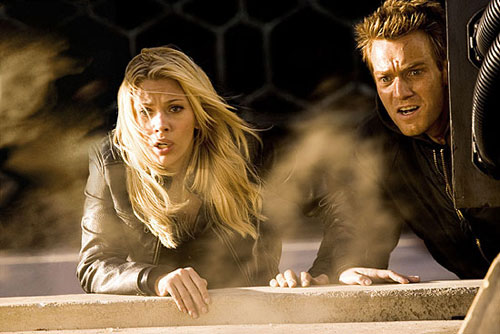
By now, Michael Bay had had three major successes, and the restraint was beginning to falter. In 2001, Bay brought us Pearl Harbor, his first critically acclaimed debacle. In what was essentially a bloated Titanic-style event film set around the Japanese bombing of the Hawaiian islands in December of 1941, Pearl Harbor was a critical misstep from Bay that I don’t think he ever really worked through. The appeal of Bay as a filmmaker is that he seems to delight in simply going full bore with an idea, often regardless of it’s merit within the context of the film, and most audiences seemed to find that his insistence on inserting a frankly dreadful romantic triangle between Ben Affleck, Kate Beckinsale, and Josh Hartnett, simply too much. Audiences weren’t sure if Pearl Harbor was a romantic tragedy, an action film, or a strangely uninspiring mix of the two.
Ultimately, though, Pearl Harbor made a profit, although perhaps not as big a one as the studio had hoped for, or expected. In traditional Bay fashion, though, the perceived failures of Pearl Harbor were brushed aside for the next effort, Bad Boys 2. Bad Boys 2 was touted by Bay in the months leading up to it’s release as a fun, stress free film experience, in which he re-teamed with Will Smith and Martin Lawrence to try and recapture the magic of his debut film. While Bad Boys had been somewhat of a bolt from the blue, the expectation of the sequel, with the now mega-star Smith and the decidedly lacklustre Lawrence, ensured Bad Boys 2 could never live up to the hype. In the cold light of day, Bad Boys 2 isn’t a pleasant film to work through. While the original Boys had had a little glint in the eye throughout, here, the tone was altogether different. Sans Tea Leoni, and with some horrendous sequences involving corpse’s strewn from the back of a mortuary wagon across a major highway, Bad Boys 2 struck the wrong notes with critics, although it still made a generous profit and ensured Bay kept his record intact.
But it was his next film that excited critics and audiences, even if they stayed away from cinemas for the film’s theatrical run: The Island. Featuring Ewan McGregor and Scarlett Johannson, The Island was to become Bay’s most critically praised film, even though it was not as financially successful as his previous efforts. The Island was more hard sci-fi, a generously pretty cast sashayed into a sterile, mysterious commune of people all waiting to be released from their home to the titular Island, which is populated by lottery. When one of the inhabitants of the colony starts to question the existence of the very place they live in, he unleashes a chain of events that, like a tidal wave, are impossible to contain or stop. The themes and story points of The Island are among the more interesting Bay has worked on, and considering his normal penchant for disemboweling logic and intelligence with an explosion or gunshot, this is a more advanced, more serious Michael Bay at work.
Bear in mind, serious sci-fi had taken a giant stride forward with the release of The Matrix and other, cerebral films set in the future. However, almost all critical summaries of The Island conclude with one note: the film takes a dramatic left turn when it starts to get interesting and Bay resorts to his usual bag of tricks to maintain audience interest. The plot goes out the window when things start blowing up. I admit, I’ll agree with this summation, for the most part. Of all Bay’s films, The Island is as close to a real serious film as we’re likely to get from him.
Then, a few years ago, Michael Bay signed on for Transformers, based upon the Hasbro toy line of the same name. Considering all his previous films were original works, it was going to be interesting to see how he’d go adapting his style to suit a pre-loved world, a set of known characters, and a strict rule book to which he’d have to adhere. Many fans of the Transformers legacy were concerned that Bay would ruin the franchise, his cock-sure filmmaking style and pretense of style over substance intimating to fans that he’d simply take Optimus Prime, Megatron and the rest and just whore out the characters for the sake of money. The "Damn You Michael Bay" internet frenzy notwithstanding, perhaps the fans were right to be concerned. But many fears were allayed when they realised that Steven Spielberg would be producing, as his presence on the film would be a more controlling one than Jerry Bruckheimer ever gave. With the reins being pulled by a seriously talented filmmaker like Spielberg, fans waited with baited breath for the release of Bay’s biggest film yet. Transformers was a cataclysmic success. Both narratively, and stylishly, Transformers gave many fans exactly what they were looking for: a genuinely fresh look at a franchise with a lot of reverence for the original material. Some elements of the film felt a little childish, almost Spielbergian in influence (particularly the Frenzy Decepticon character) but as a whole, and considering the budget, this film blew other, larger efforts out of the water.
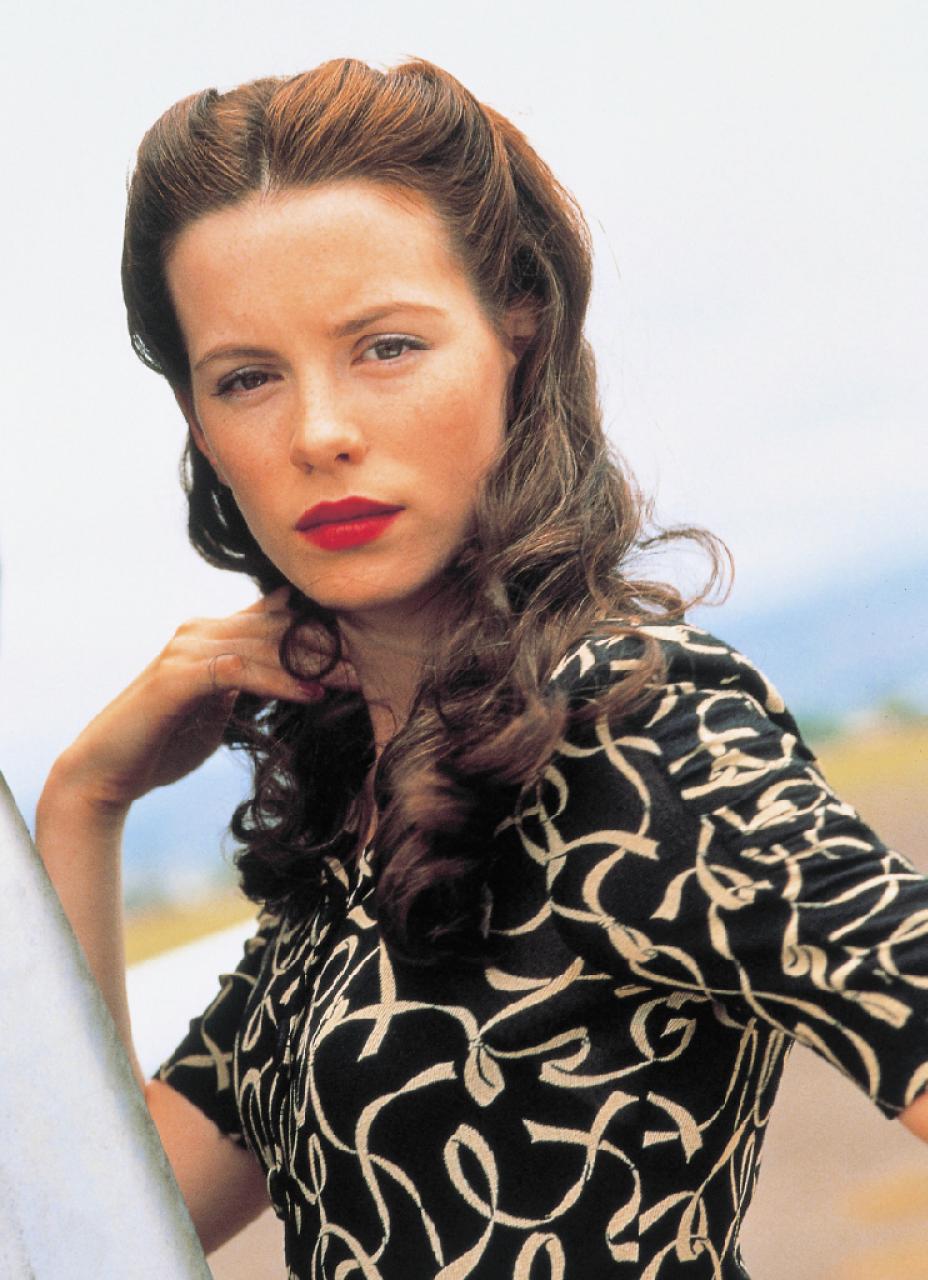
“I just wanted to shake the hand of the daughter of the bravest man I’ve ever met.”
Michael Bay is, by all accounts, a difficult man to work with on a film set. Or, perhaps, to put it another way, he demands a lot, and often is taken as being rude or brusque, when he simply demands the best. Now, I cannot claim to have met the man, or even spoken to him via phone or Skype, to my viewpoint is put together from various DVD supplementals on which I have spent a deal of time enjoying. Bay’s demand of his crew to bring the action, to perform stunts, to capture the raw essence of a scene, is extremely high. I am not sure if shouting at people to get them to hurry is exactly the right tone for a film set, but it does seem to get the job done. People under pressure perform better, right?
There was a rumor, a few years back, that Scarlett Johannson had spat the dummy over Bay after filming had finished on The Island. She had come out and said that "she’d never work with him again", in much the same way people often spoke of Stanley Kubrick. Not that I’m trying to compare Bay to Kubrick, but the essence of the two directors is comparably similar. Both Bay and Kubrick are exacting, demanding, and in Kubricks case, famously reclusive. While Bay is content to parody himself in commercials for computers (hence the title of this article) and a major Australian Bank, Kubrick shunned the celebrity to which he was so undoubtedly entitled. Yet, for all his efforts, Bay has yet to make a film that can compare to 2001: A Space Oddysey. Armageddon, for all it’s bombastic space-opera cathartism, is no 2001. Why? Because Bay isn’t subtle. He doesn’t make subtle films. His brusque, testosterone antics on set are indicative of the style of his films: he comes across as a mans man, a guy’s guy. Takes no shit, gives 110%. Is this itself a bad thing? Again, not knowing the man personally, it’s hard to give an accurate representation, however, I’d glean from various interviews and commentaries he’s given over the years that Bay doesn’t really care what you think, he’s happiest making films. And if that’s a bad thing, then so be it. But subtle he is not, nor is he ever likely to be.
My own opinion of Michael Bay as a director is that he works to the lowest common denominator: he’s a filmmaker for the YouTube generation, who want things fast, simple and funny. While Bay’s sense of humor can be… well, abrasive or obscene at times, there’s no denying the man can tap into an audience and get them going. Be it the frenetic chase through San Francisco in The Rock, the scientifically impossible drive-a-space-shuttle-like-a-car maneouvre in Armageddon, or the train wheel freeway chase in The Island (which Bay himself cloned in Bad Boys 2!), Michael Bay’s films deliver some of the most heart pounding excitement currently on offer in modern cinema.

But before you start thinking I’m simply here to give a love-in on Bay, let’s focus for a moment on some of the things his detractors would say about him, and see if they’re right. Of course, what people think is merely a persons opinion, and they’re entitled to those, but they have to have a foundation of truth in order to become valid.
The “Damn You Michael Bay” debacle has been an ongoing internet meme for years, perpetuated on blog sites such as Ain’t It Cool News, to name one. Now, the freedom of the internet is often used by those with little intelligence to simply poke fun, mock, or openly abuse, those who have put forth an entertainment for consumer intake, simply for the fun of it. But does the internet wankfest of Ain’t It Cool News have a valid point in their appraisal of most things Bay? Harry Knowles, who directed his readership to boycott the most recent Revenge Of The Fallen because he perceived two of the characters to be racially motivated and politically incorrect, had a fair point when he questioned the motivation of putting two characters into a film that would spark some kind of controversy. Now I don’t always subscribe to Harry’s far superior film standing, in fact, often, I disagree with his statements, but in this instance, I agree with his summation. Skid and Mudflaps, two jive-talking characters within Revenge, are perhaps of the same insulting pandering to commercial vanity that George Lucas inflicted upon us with Jar Jar Binks. And they’re appalling. In this case, “Damn You Michael Bay” indeed.
I’ve never subscribed to the anonymity of the internet for simple insults and pot-shots at those unable to respond, but in this case, I’ll state my case loud and clear: Michael Bay seriously misjudged his audience with this effort. Revenge is a pretty clueless, bloated film anyway, but to spoil a potentially great story with two character with almost zero appeal to anybody, and it reduces all your hard work to nothing. Nobody seems to want to take the blame for the Twins, neither the writers nor Spielberg have put their hands up to own that one, and it’s disingenuous towards the audience to expect Bay to wear the entire blame for that. No doubt commercial interest came before storytelling nous on that score.
Bad Boys 2, in which Will Smith and Martin Lawrence become embroiled in a car chase during which the corpses of humans spil onto the street from the back of an autopsy wagon, is hard to stomach, even for a cinephile like me who sat through Catherine Brelliat’s Romance and Gaspar Noe’s ghastly Irreversible. Bad Boys 2 relies more on the mean spirit of a serious crime flick than the action-y pap Bay has produced before, the clinical explosive tomfoolery of Armageddon and The Rock, for example. Will Smith seemed uncomfortable, and Martin Lawrence’s performance was akin to having teeth pulled, it was so dreadful, and yet Bay still cobbled together a series of skit-type scenarios of varying offensiveness just to keep the teen boy audiences happy. Where Bay draw’s the line in his directorial sand is a little vague, to say the least. It’s more clear for his production company Platinum Dunes, which has slowly remade almost every possible classic horror film franchise from Texas Chainsaw Massacre to Nightmare On Elm Street, including the ultra-violent The Hitcher, and the very ordinary Amityville Horror remake. Platinum Dunes excess allows Bay to dip his hands into a vastly more genre-specific market, and it’s obvious he enjoys it. But as a director, behind the camera, he knows how best to direct action. Sometimes, though, the story lets him down.
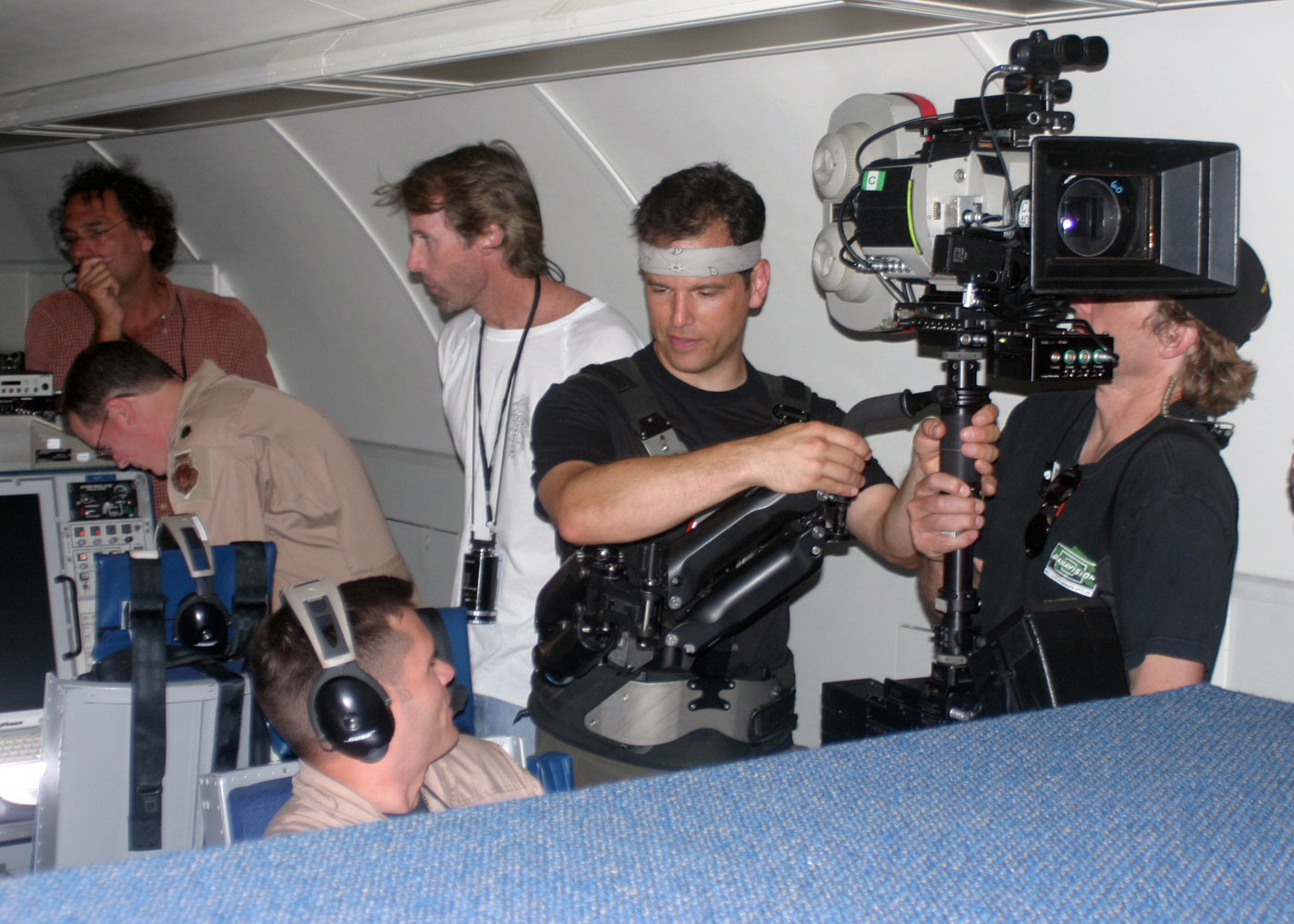
Even Transformers is rife with issues, namely some middling pacing about twenty minutes in involving a plethora of CIA or NSA agents and a Decepticon audio signal humans are trying to decipher. Bay’s never one to shy away from introducing ancillary characters without warning, and Transformers is full of them. However, thankfully Bay’s Transformers is salvaged from mediocrity by the talented Shia LaBeouf, who holds this film on his young shoulders like a veteran actor. Unlike Megan Fox, whose ability to perform is perhaps more reliant on the right camera angle than anything she actually says, LaBeouf is an actor of untapped potential, and while Spielberg seems keen to whore him into almost any project he can imagine (including as Indiana Jones’s son in Kingdom Of The Crystal Skull!), I can imagine that one day he’ll get a script that he can sink his teeth into and really generate some buzz.
I think Transformers shows us that Bay lacks the ability to really direct actors, almost treating them as another prop, another effect, if you will. Most cinema directors have had experience getting a performance from an actor, getting emotion and subtlety from a convincing portrayal that translates onto the screen: Michael Bay is, in this facet of his talent, a little lazy. He seems content to let the actor do whatever he or she wants, and simply films it before moving onto the next scene. The Rock, in which Ed Harris is reduced to a spittle-laden caricature of a military general the longer the film goes, is a case in point. The script is so haphazard and filled with expletive ridden gung-ho dialogue, it’s hard to watch with a straight face. One can only imagine the gag reel on this film! But instead of drawing out layered, faceted performances from the cast, Bay seems content to let the actors simply say the dialogue without guidance before cutting to the next sequence. Usually with guns. There’s a great certainty with Bay; he can make anything blowing up look awesome, but he can’t direct actors.
A lot of detractors of Bay as a filmmaker say that his camerawork is hard to watch, very frenetic and energetic to the point of provoking an epileptic seizure. Having seen all of Bay’s films, I’d probably agree that at times, particularly in his later films like Transformers and somewhat in The Island, Bay has tended to put his camera a little too close to the action. The man himself has come out and stated that he wants to put the audience in the middle of the action, that he wants us to almost feel the energy of the scene he’s shooting: I guess the argument against that, is that if the audience can’t determine exactly what the hell is going on on-screen, then it doesn’t matter how close you put them, they simply won’t get it. Personally, I enjoyed Bay’s camerawork on Transformers, and a little less so on Revenge Of The Fallen, the former of which gave me enough space to take in the massive robots brawling, the latter simply was eye-gogglingly beffuddling. I can see, however, what those people are saying in that the camera is oftentimes too close to the action, and Bay relies too little on wide, establishing shots.
Take a gander at a film like The Matrix, by comparison. Almost every action scene, save perhaps the opening one with Trinity escaping from the Agents, is shot in a clear, clean way that allows the audience to take in and understand what’s happening on the screen. Paul Greengrass’s Bourne movies, as another example, can get a little straining to watch in their rapid-fire editing and camerawork, which is more similar to Bay’s recent work than people might suggest. Bay, however, still keeps his frame relatively clean and clear of debris, whilst Greengrass relishes on blood splatter getting onto the lens. The Matrix is an easier film to watch because of it’s fluid, naturally wide scope being utilised correctly. Revenge Of The Fallen, with copious giant robot brawls filling the screen to the point of indeterminability, is hard to watch. Bay has eschewed the wide shot for more frenetic closeups, a formula which makes things hard to understand.
Of course, the trademark Bay moments, usually a beautiful young woman gazing forlornly into the sunset (Bay appears to have trademarked the use of Magic Hour for his shoots!) to the haunting strains of a Hans Zimmer score, remain defiantly kitch, a holdover from his music-video foundations, I think. Kate Beckinsale has the worst time in Pearl Harbor, and surely must have permanent sun-spots on her retinas from the shoot. Beckinsale glowers, gazes, pouts and powers her way through an atrocious script in Pearl Harbor to be one of the more enduring memories from that film, save the battles. Honestly, I thought Beckinsale too weak an actress to carry off such a role, and unfortunately, I think I was right all along: but she gives it a solid go. It’s a classic example of how Bay manipulates an audience with his zeal; the women in his film are never the leads, never the main characters.
And this, unfortunately, is where Bay has most of his problems. His characters, particularly the women, are almost entirely superficial.
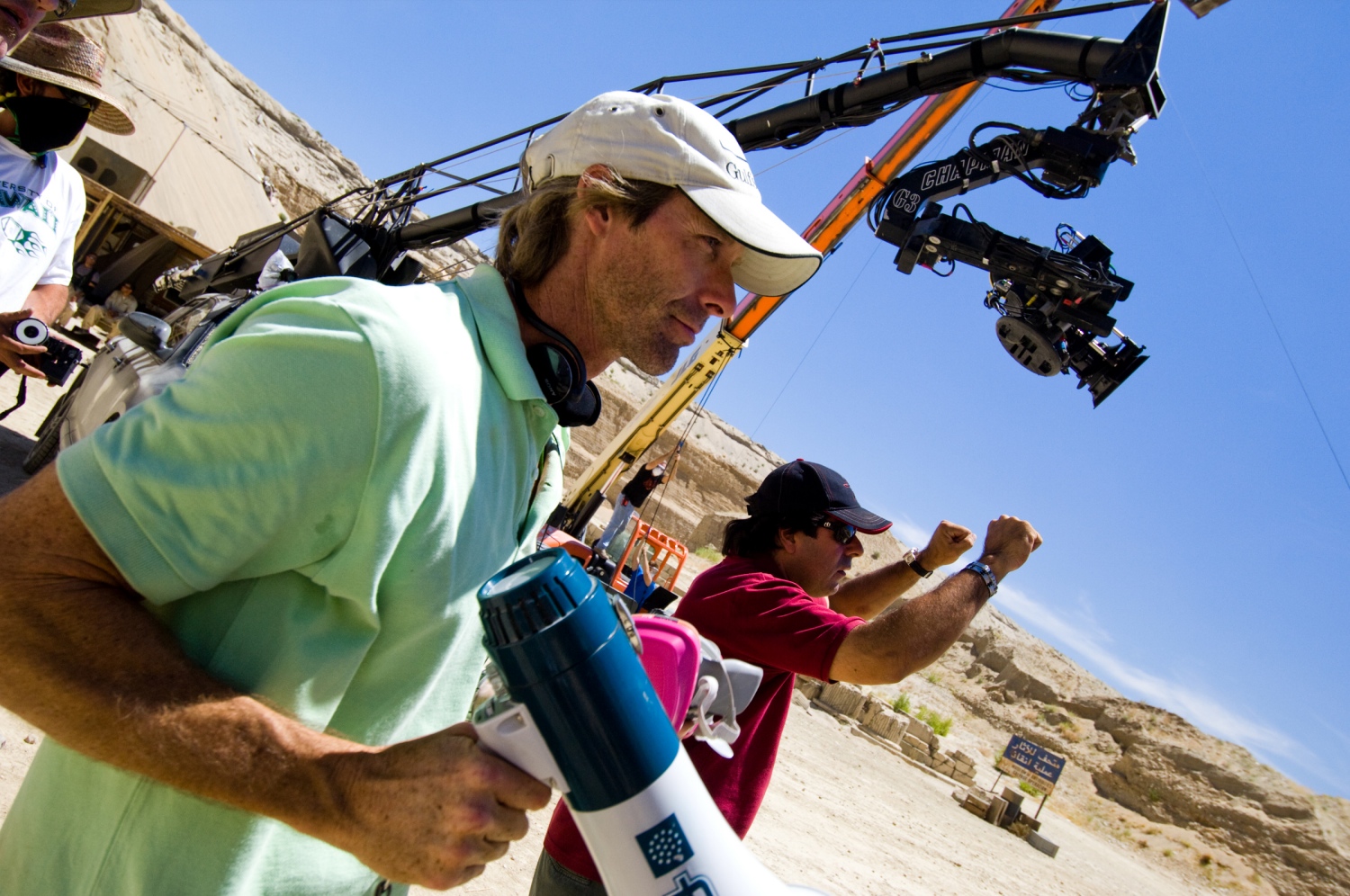
“Every night I watch the sunset and soak up every last ray of its warmth, and send it from my heart to yours.”
Among the majority of the complaints I can level at Bay’s films is the fact that the actual characters are dreadfully written. Again, especially the women. In The Rock, Armageddon and The Island, the scripts call for some truly diabolical dialogue. Take the above quote from Pearl Harbor, for example. Honestly, can you look your loved one in the eye and say that without dissolving into a fit of hysterics? And they expect people to buy this rubbish? The above line was written by Randall Wallace, the man responsible for the story Mel Gibson brought us in Bravehart, and the filmed brutality that was We Were Soldiers (another Gibson film, by the way), so you’d think some sort of quality might be involved in the scripting process. Pearl Harbor, if I’m going to kill one film here for its inadequacies, is by far one of the worst written Michael Bay films, if not worst written film period, I’ve seen. The drivel that comes from these people is simply mind numbing. And you have to ask yourself, how on earth did Bay justify sentences like this to himself when he was on set filming? Was he talked into it by Jerry Bruckheimer, who produced? Perhaps this is only known to Jerry and Michael, but the end result is a woefully developed character set spouting Mills & Boon rejects while Pearl Harbor burns! Tea Leoni, who plays Julie in Bad Boys, has a decent amount of scripting, and some decent lines, and to me, her character is possibly the stronger of the three genuine leads in the film. Personally, I think she actually out-acts Smith and Lawrence, although with Lawrence that’s not much of a stretch. And I hate Tea Leoni with a passion. I have never liked her as an actress, she just annoys me. I can’t explain it, but she does. But with Bad Boys, she manages to be somewhat sexy, somewhat appealing.
Megan Fox, from Transformers, plays Michaela, the female sidekick and romantic interest for Shia LaBeouf’s character, Sam. I’m pretty sure, nay, certain, that Fox wasn’t chosen for her thespian skills, but rather, for her looks, which, I might add, are particularly pleasing to the eye on a 2.40:1 screen ratio. Bay’s predilection for having women as inferior characters to the male ones is a little cliched, and perhaps more politically incorrect than having two homeboy-inspired Twins in Revenge Of The Fallen. I’m not a feminist, let’s make that clear. But unlike the great Alfred Hitchcock, who was an unashamed womaniser and cast beautiful women in lead roles of intellect in his films, Bay seems reluctant to go there. Perhaps he’s yet to find the script that suits, but almost all of the women in his films are token, or sexualised to the point of ambivalence as to their importance. Fox is only the latest in a long line of female sex-kittens to grace our screens, and no doubt her star will shine brightly for a moment: but like Maria Pitillo in Godzilla, audiences will recognise people with no talent and rebel, ensuring they fall from grace as fast as they arose.
The women in Bad Boys 2, as another example, are invariably crack hos, sluts, or bikini wearing gutter trash in place simply to cater to the teen adult market for whom this film is aimed at. A derogatory sequence involving Smith and Lawrence accidentally allowing a sex scene to play in an electronics store is perhaps the biggest indictment on Bay’s insistence on sexualising women. Without even realising it, he’s produced a porn clip as humor. Deep down, I can get the humor of the scene in it’s context, but the underlying themes of degradation for humor must surely hit a sour note, especially in context with the misogynistic nature of the rest of that particular film. No doubt Bay is never going to market his films towards women, it must be said, and I think he’s calculated just how far he can take his male audience, but the poor man is damned if he does, damned if he doesn’t. On one side, he has Pearl Harbor, perhaps his most female-friendly project, if only for the addition of teen idol Josh Hartnett (who seems to have fallen off the radar quicker than James Van Der Beek and Luke Perry!) alongside proven performer Ben Affleck, who must surely rue his paycheck from this film. On the other side, you have Bad Boys 2, the most anti-female film Bay has yet made, simply for it’s portrayal and acceptance of women as sex objects, and nothing more. Even Martin Lawrence’s screen wife and daughter are treated with limited dignity; a scene involving a potential suitor for his daughter has elements of sexualisation of youth, given both police officers threaten bodily harm to a minor if that minor does anything with the daughter. Am I taking this too far? Maybe, but then, give me an example of a woman in a Michael Bay film who gets a fair, positive portrayal.
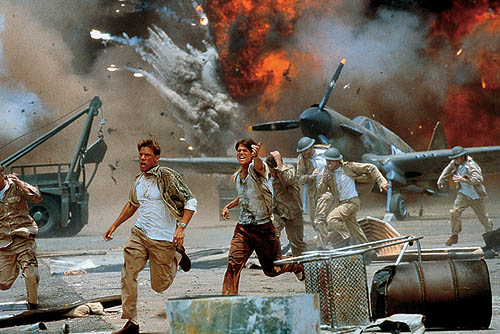
And what about Liv Tyler and Judith Hoag from Armageddon. Liv Tyler plays Ben Afflecks fiancee, and daughter to Bruce Willis, Afflecks boss on the mission. Tyler’s soft-focus moments with Affleck, and effectively as token face of humanity as she waits for them to return from destroying the asteroid that is about to strike Earth, are limited to heart-tugging emotional manipulation of the audience (particularly any female ones watching), yet resound with the submissive, have-to-put-a-chick-in-the-film sentimentality rife within Bay’s work so far. Judith Hoag, as the estranged wife of Will Patton’s heroic Chick, and whom we see being a complete bitch in her opening scene (of course, the “why” is utterly removed from this, so we have no context as to why she’s a total bitch, but it makes for an easier transition come her recanting of her husbands expatriation from her son later in the film) is a cypher for even more emotional manipulation. This character should have been quite a strong one, matching her ex-husband in terms of heroic strength, however, Denise, as her character is so named, simply exists to provoke a reaction in the audience. Not to mention the strippers at the club the astronauts visit on their last night on Earth. Bay’s almost pornographic camerawork here elicits derision from a serious film fan, and delight from a hormone ridden teenage boy.
Scarlet Johannson, playing opposite Ewan McGregor in The Island, is perhaps the nearest thing to a strong leading female character Bay has yet produced, although she plays second fiddle to the dominant male character the whole time. Johannson is there to a) look good and b) ask questions that provoke the story moving along. While the pretext of a faux Adam & Eve storyline is supplanted in our conscious by a very willing script from Alex Kurtman and Robert Orci, essentially The Island becomes a standard wrong-man chase sequence involving a Lamborghini and a freeway pursuit that ends the same way the one in Bad Boys 2 did. Ewan McGregor’s character takes the lead in the film, and Johannson ends up becoming the "token female" on which emotion rests. Michael Bay seems dedicated to using his women characters as either crutches for plot twists and development, or eye-candy, to which one can only surmise he’s happy with.
Does this make Michael Bay sexist? It’s hard to argue against, that’s for sure. But the case is there that Bay treats women with contempt in his cinema palette.
Another aspect to consider is Bay’s seemingly blatant disregard towards violence, the fact that as long as violence is being carried out by the heroes of the film, then it’s okay to go as hard and fast as you’d like. A prime example is Bad Boys 2, in which the bloody and horrific carnage reaped across Miami, including the aforementioned “corpse from the van” sequence, pales into comparison when the girlfriend of Will Smiths character is kidnapped and held hostage by the films central bad guy. Considering the body count up until this point, it’s fairly cavalier of Martin Lawrence to utter the trailer-worthy catchphrase “This shit just got real”, mitigating the relevance of the previous deaths in the film. It seems death and violence is simply a means to an end for Bay’s characters. Suddenly, the characters think it’s all a bit serious. The disregard for death shown by Bay’s films, especially in fare like The Rock and Bad Boys, appears somewhat callous and belligerent, a moral shallowness in which life is cheap.
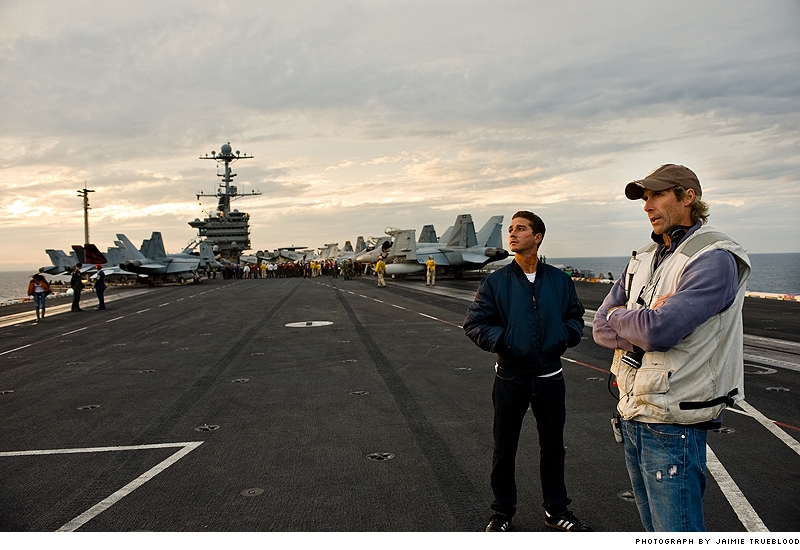
“Mike, I can’t even get an erection. I tried taking Viagra. Popped one, popped two. I’ve been eating them like Skittles”
Establishing a cinematic style takes time. It takes effort, experimentation, and time. Spielberg had style to burn, at least, in his early days, and many of his signature moves are still evident in his more recent output today. Brett Ratner, whipping boy for talentless hacks who proclaim to know about film (again I point to Ain’t It Cool News) seems consigned to the director-for-hire heap when it comes to his own style, because it appears he has none. McG, the single monikered one responsible for the delightfully entertaining Charlie’s Angels films and then the redundant Terminator: Salvation, and who sounds a lot like Troy Duffy as far as directorial prowess goes, has a style all his own, although nobody seems capable of telling me what it is. Legendary directors like Scorcese and Hitchock have/had their own brand of cinematic style.
And so does Michael Bay. His style is flat out, and he doesn’t care if you can’t keep up, apparently. Hyperkinetic camerawork, a penchant for machine-porn, lavish slo-motion during moments of high intensity, and a willingness to embellish his films with the wild and wacky creativity of a child afflicted with ADD. Now, some may find this particular brand of filmmaking boorish, perhaps even offensive. After all, those who have come before have achieved incredible feats of cinematic craft. From the early years of DW Griffiths, to Capra, Hitchcock, Lean and Wyler, to modern maestros like Spielberg, Cameron, Scorcese and Coppola, to name a few, cinema has been held up to a high standard by those with a keen eye for storytelling and style. Even action-flick directors like Richard Donner, Tsui Hark, and even John Woo have taken their genre and produced some classic films from it. Michael Bay, for all his style, has yet to make a film that can be called a “classic”, like a Lethal Weapon or The Killer. Sure, those guys have all made their fair share of turkeys, but Bay hasn’t yet been seen to rise above his video-game-film mentality to produce something culturally significant. So the question must be asked: is Michael Bay working to the detriment of cinema, or does he bring something unique to the table?
Before we can answer that question, we must first discuss what exactly warrants artistic merit in cinema these days. You see, for as long as Hollywood has existed, there have been those whose film output has been, shall we say, less than stellar in terms of quality. Take, as a prime example, Ed Wood, the purveyor of trash cinema who gave us films like Plan 9 From Outer Space, and the great cross-dressing epic in Glen or Glenda; the man had absolutely no talent whatsoever when it came to filmmaking, yet he made up for that in enthusiasm (misguided as it was) and perhaps the lure of the bright lights of Hollywood fame. Nowadays, Wood is considered to be a pioneer of trash cinema, grand master of all the b-grade and z-grade schlock that’s graced our screens and video store shelves in the decades since. Indeed, Plan 9 seems to have grown in status from absolute shocker to cult favourite: not because the film has improved with age, but simply because it’s status as absolute crap has elevated it to an amusing curiosity. Now, I’m not trying to compare Michael Bay to Ed Wood, in fact, far from it, because I think the director has more talent in his little toe than Wood ever had throughout his career. But the fact remains that Bay has produced some absolute shockers in his time: Pearl Harbor chief among them. For style and cinematic charisma, though, Bay takes a lot of topping. While he may not have logic and accuracy in his films, or even a sense of restraint, he does have a genuine eye for action. The man knows how to stage a large-scale event, from exploding army tanks to wild car chases through city streets. He does it well. A long standing descriptive tag for Bay has been that if you want stuff to look good being blow up, he’s the man to call.
Then you have genuinely talented story-oriented directors around today like David Fincher, James Cameron and the criminally underrated Edward Zwick, whom most people wouldn’t know of unless you told them the films he’d directed: Glory, The Last Samauri, Courage Under Fire, Blood Diamond, to name but a few. These directors carry a certain weight within the industry, a kind of classy pre-conception that people have about the way they go about their craft. Unlike the lamentably inept Ed Wood, guys like Zwick and Fincher turn out quality films every single time, albeit not always to commercial success, mind you. But they make their films for the love of the craft, the fact that filmmaking seems to pour ot of them at every turn, a little like Robert Zemeckis or perhaps even Mr Spielberg. The young brigade today, perhaps even including those fellows who directed Crank and Crank: High Voltage, represent a new era in storytelling that remains as indefinable as some of the films they make. In todays mass-produced do-it-on-a-PC-at-home filmmaking system, almost everybody can make a movie or video for themselves. But only a very few actually have the talent to do it well. While Zemeckis and Zwick have gone about their careers with varying commercial success, people like Michael Bay and Mark Neveldine & Brian Taylor simply aspire to entertain for the sake of entertainment. There’s no discernible desire to try and be all intellectual, to deliver us a Little Miss Sunshine or a Danny Boyle Slumdog Millionare, not from the likes of Bay.
They simply enjoy giving people a couple of hours away from their humdrum lives and entertaining them. The intellectual stimuli between a film like Transformers and The Curious Case Of Benjamin Button, for example, are so vastly separate as to almost be impossible to link. However, on a fundamental level, they both serve a common purpose: firstly, to entertain. Whether Transformers‘ moral center reaches more people than a de-aging Brad Pitt is not the point, at least, not the point to the majority: what any director sets out to do with a film is entertain, shock, elate, anger, motivate and even stimulate something within his or her audience. Mimi Leder, who directed Dreamworks first ever film, The Peacemaker, and went on to direct sub-par Armageddon-clone Deep Impact, as well as the overtly manipulative Pay It Forward, is among only a handful of female directors to tackle the action/sci-fi genre to any success. James Cameron’s ex-wife Katherine Bigelow is an equally adept female director, however, there are far too few within the Hollywood system who appear to tackle anything more than the latest shite like He’s Just Not That Into You or whatever rom-com Matthew McConaughey is making these days. Being a male director, or a female one, has as much bearing on the argument for artistic merit as a leper does with skin-care. The problem with artistic merit, for the purpose of this article, is that it’s a purely subjective thing. What is good for one person, is absolute rubbish for another. Such is a great thing about film (among other things), is that we’ll always be arguing and debating the relative merits of one film to another, one director to another, one actor to another.
Whatever your feelings as to his works containing any kind of artistic merit, Bay has carved a niche for himself that he seems quite comfortable in. If Bay ever made a film version of Need For Speed, I’d be first in line to see it. Explosions and carnage seem to be his raison d’etre, and he knows it.
But could he do something different? Would Michael Bay do justice to a period drama like Shakespeare or Bronte? Would Bay team up with Pixar to direct their latest animated masterpiece? How would he handle it? Bay’s ability to craft a story and characterisation from the scripts he works with (which, as we’ve already discussed, aren’t all that great in the first place!) is haphazard at best. Bay’s reliance on histrionics and cliche, as well as gargantuan carnage, limits an audience’s ability to empathise with his characters on screen. Usually, the audience is so enamoured (or put-off) by the explosive exploits, any attempt in story development and characterisation is mitigated by adrenaline and bombast. Does Bay even care if the story ain’t so crash hot? Honestly, it never seems to matter to him as long as the explosions look pretty, the women are hot, and the guns look cool.
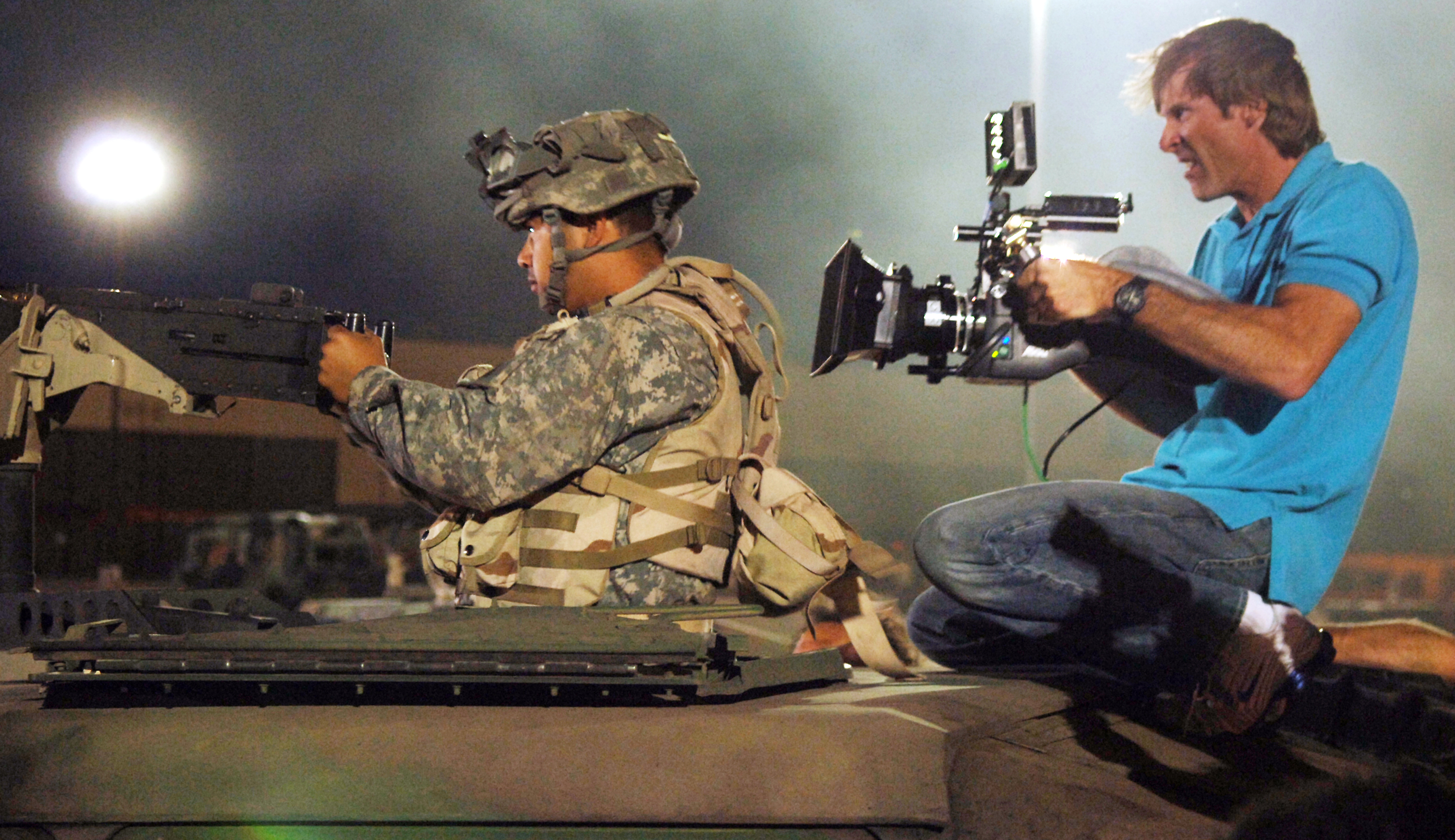
“Just cause people wanna eat the burger doesn’t mean they wanna meet the cow.”
Okay, so we’ve covered some of the stuff that many people would point out as being the bad side of a Michael Bay film. But what of the positives? After all, the man has made squillions of dollars in his feature career, and doesn’t look like slowing down yet. I did say at the outset that I was a Bay enthusiast, I enjoyed his work enough that Armageddon and Transformers rank in my all time Top Ten film list, alongside such luminaries as Twister, Return of The Jedi, and Moulin Rouge, to name a few. So that said, here’s what I think is good about Mr Bay’s films.
First, they make absolutely no bones about what they are: an entertainment. Pure and simple, Bay sets out to entertain, as best he knows how. Love him or loathe him, you cannot deny that on a pure level, Bay delights in escapist, exciting entertainment. Some would try and justify their opinions with examples as to what constitutes an “entertaining” film. After all, The Godfather and Citizen Kane are often cited as the greatest films ever made, yet I’d hardly class them as “entertaining” on a pure, simple level, like films such as Armageddon, Star Wars and other popular classics of decades past. The difference between Citizen Kane, for example, and Armageddon, is that each film has a different agenda. And I think a lot of people often mistake “entertainment” value for an agenda value. Armageddon does not preach to anybody about the dangers of global warming, nor does it try and politicise a concept in any way to evangelise it’s message to a minority, it simple sets out to excite, enthrall and exhilarate. Whether it does so or not depends on your ability to look beyond the real logic of the given scenario (seriously, if an asteroid slammed into Paris the way it supposedly does in Armageddon, then there would be nothing left standing: instead, we still see glimpses of the Arc De Triumphe, and various other Parisian buildings left behind) and if you can see past the obvious flaws in narrative, then you’ll probably enjoy the film a lot more.
Citizen Kane, with it’s now famous and oft-parodied line “Rosebud”, is intended more as a social commentary and an agenda-based film. The ethical and moral themes in Kane are more serious, more intellecutual, and if you’re after a film of that nature, then that’s where you’d head. I think a lot of people, especially those who criticise vacuous action films for having little or no heart/intelligence/logic, often miss the point. The point of films like Armageddon, The Rock and Transformers is not to try and identify an overwhelming social problem, solve the worlds issues of create political standings on a subject, but simply to give an audience a release for a couple of hours. Some people will say that action films need to be intelligent, have some kind of logic, have a basic narrative thread that people can connect to. I argue that Michael Bay’s films have some of those things, but perhaps not in the quantities that some may appreciate.
Where films such as Die Hard and The Matrix succeeded in being smart, well executed and exciting, to some, raised the bar of what an action film “should” be. Instead, I think it merely illustrates my point: an action film is simply that, an action film. There’s chases, guns, explosions, deaths, various amounts of miscellaneous carnage and, (hopefully) a sense of entertaining fun that permeates a film that engages an audience. Bay clearly knows how to engage an audience, it’s just that most people over the age of 25 think that Bay’s audience are boys who haven’t had sex yet. To be honest, those folks simply need to let it go.
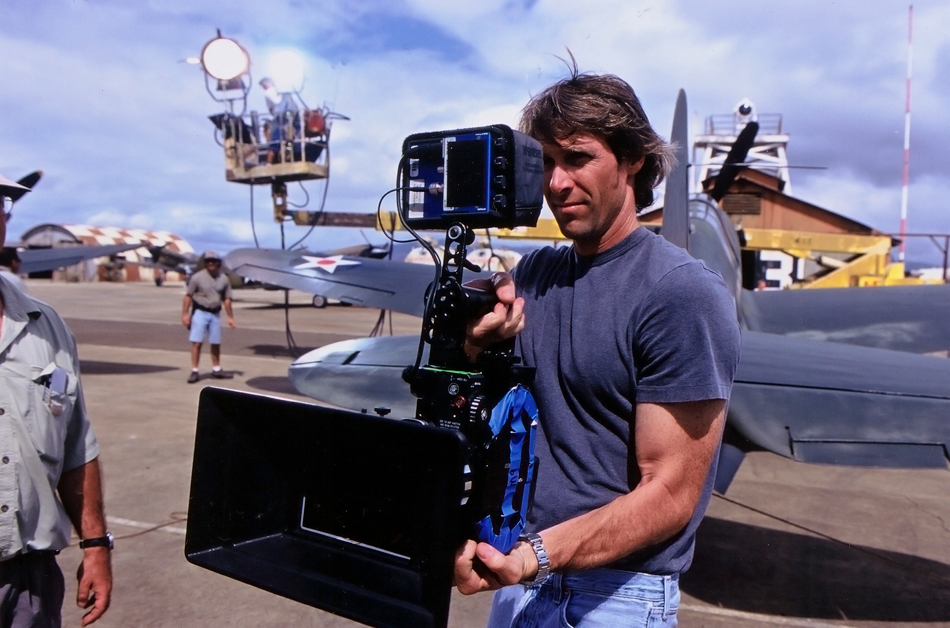
Having Michael Bay’s moniker above the title of a film indicates just what kind of film you’re likely to get. On the whole, Bay’s films look spectacular, his eye for framing and shot composition is always, and I mean always, first rate. I don’t recall seeing a badly composed shot in any of his films. His sense of editing and timing is impeccable. Watch the bomb diffusing scene in Armageddon, perhaps the best moment in any Bay film to date: the camera perfectly enhances the tension, the fear, and ultimately the relief, with Bay’s sense of intimacy and comedic skill working to it’s most enthusiastic. When things get tense, the camera rack pulls into the actors, swishing past them and pushing us closer, closer, into the sequence, as if we ourselves are there helping Bruce Willis stop a nuclear detonation. Then, the wire is cut, and we find ourselves relieved: the camera pulls away from the actors and distances itself from the moment; it’s a cinematic way of describing that rush of post-adrenaline relief after fear has passed. It works well, and it’s this kind of cinematic fervor that get’s people wound up in disgust. Bay uses every aspect of the film, from editing, to camera angles, to music and sound, to tear emotion from you while you’re watching. It’s manipulative, often cliched, but somehow, often works well. There are those who despise being overtly manipulated while watching a film, but then, there are people who like porn; being manipulated physically or emotionally amounts to much the same thing. An emotional attachment to the subject you’re viewing.
Perhaps Bay’s most intellectual film (if one can call any of his films intellectual) is The Island, which gained perhaps the kindest reviews of any in Bay’s relatively short film career. Most critics mentioned the excellent opening third of the film, in which Ewan McGregor begins to think he’s going slightly mad. The Island begins as a tense, exciting sci-fi thriller, a horrifying excursion into herd-mentality and control, a kind of Orwellian 1984 tone permeating the proceedings. Unfortunately, and I agree with most critics, once McGregor and Scarlett Johannson break free of their forced internment, the film starts to look more like a generic chase-boom film, with explosions, guns and amazing stunts taking over in place of the quality story that came before. If anything, it proved that Bay could direct a decent script quite well, if given an opportunity. But he consistently doesn’t direct good scripts, mainly because first and foremost he’s an action director. Which is kind of annoying, because any good director worth his salt should be able to direct dramatic moments in amongst the action stuff. James Cameron has made a career of it. Even his super-action films, like T2 or True Lies, have plenty of dramatic moments interspersed with the action. In fact, I’d even go so far as to say that good action films need dramatic pauses, to generate the required emotion in an audience. I think Bay could direct quality drama were he given a decent script, but his “creative direction” insists that he stick with what he knows.
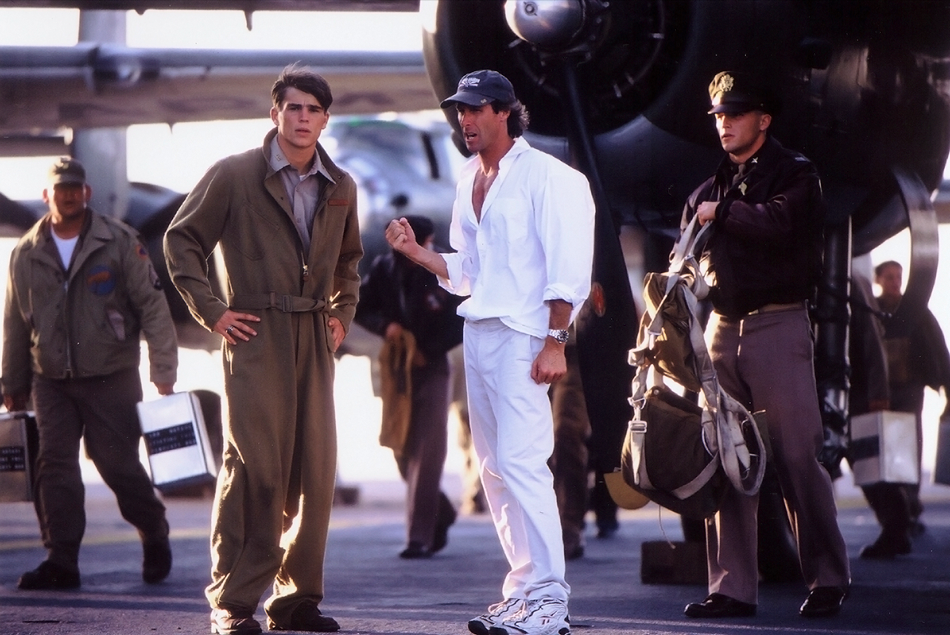
The second thing I really enjoy about Michael Bay as a director, is that he’s not adverse to trying different things, even if they don’t always come off. Pearl Harbor (sorry to belabour the point!) was a genuine effort at putting together something more than a simple slam-bang war picture, with Bay and Bruckheimer deciding to invest in some character development to try and make the story more emotional. While the character development didn’t quite come off the way it was probably intended, and to a certain degree I’ll lay that squarely on the screenplay, the intent was clear from the very outset of that film: Pearl Harbor was meant to be a love-letter to the US military, to those who served, and continue to serve, in the defense of the USA. Bay’s patriotism cannot be questioned, since he’s always festooning his films with the American flag and the traditional, chest-thumping bravado the US hero-genre always gives us. From Armageddon‘s slo-motion US flag draped across buildings and in front of homes, to the saccharine-sweet homily to corn-bread smiles from the heartland in Pearl Harbor, even to the US-is-great centricity of Transformers and it’s sequel, there’s no doubt that Bay is an impassioned American.
He obviously believes in the military machine, perhaps notwithstanding the fact that the military has appeared in one way or another in almost all of his films. Yet in spite of the fact that Bay often plagiarizes himself in his own films, and the fact that he’s honed his action-porn ability to almost entirely money-shots, Bay still has the unique ability to be able to take a story and try new things with it. Transformers took a neat twist on the “young boy discovers robots” storyline that was prevalent in films like Flight Of The Navigator and even Short Circuit, and takes it up a notch, allowing the fanboy machismo to seep through every frame of that daring, braggart of a film. Armageddon took the “underdog hero/heroes save the world from impending disaster” genre, and stripped it back to a virtual cartoon format, comedy, unbelievable action and a touch of emotion: Armageddon took us into the fantasy of herosim, rather than the reality.
Too often today, we seem to ask films for greater realism. The Dark Knight took the campy, leotarded Batman and shook the darkness out of him and onto the screen, a bitter, brilliant comic-hero detective story made real. M Night Syamalan’s Unbreakable attempted to do a similar thing: ground heroes in reality. Yet Bay revels in fantasy, a hyper-reality of lens flare and jump-cuts, the wider the story the better. This isn’t a mad driven by sensitivity towards his subject, nay, he wants to pound the emotion and the blood out of them in a glorified kineticism. I looked at films like The Rock and Bad Boys, two of Bay’s earliest films, and thought about how although they were set in a reality based scenario, the way Bay used the camera and edited each scene, there is still an element of fantasy about it all. Neither film is to be taken too seriously, least of all The Rock, with Connery chewing his way through each line and scene. Cage looks a little lost in The Rock, to be honest, like he signed on to something without actually understanding what he was getting into. Thankfully he made Con Air a year later and solidified his reputation as a serious actor. While Bad Boys gave us the best of early Will Smith, the film’s razor-sharp editing and storytelling technique gave us our first glimpse into the hyper-reality Bay was trying to develop.
You can bitch and moan about Bay’s seemingly endless penchant for this style of filmmaking, this hyperbolic seizure of style over substance, or you can embrace it. While I seemed to be born with an ability to enjoy both serious dramatic films like Eternal Sunshine Of The Spotless Mind and Babel, I am somehow also able to enjoy and appreciate even those films considered to be below human standards, like anything directed by Paul Verhoeven. Starship Troopers is still inside my Top Ten Films list. Showgirls, meanwhile, is not. But I enjoyed Showgirls anyway. The point is, is that his films can be enjoyed in ways that other, more serious fare, simply cannot. And an inability to appreciate that fact may lie in the resultant critical barrage that follows Bay’s films upon release.
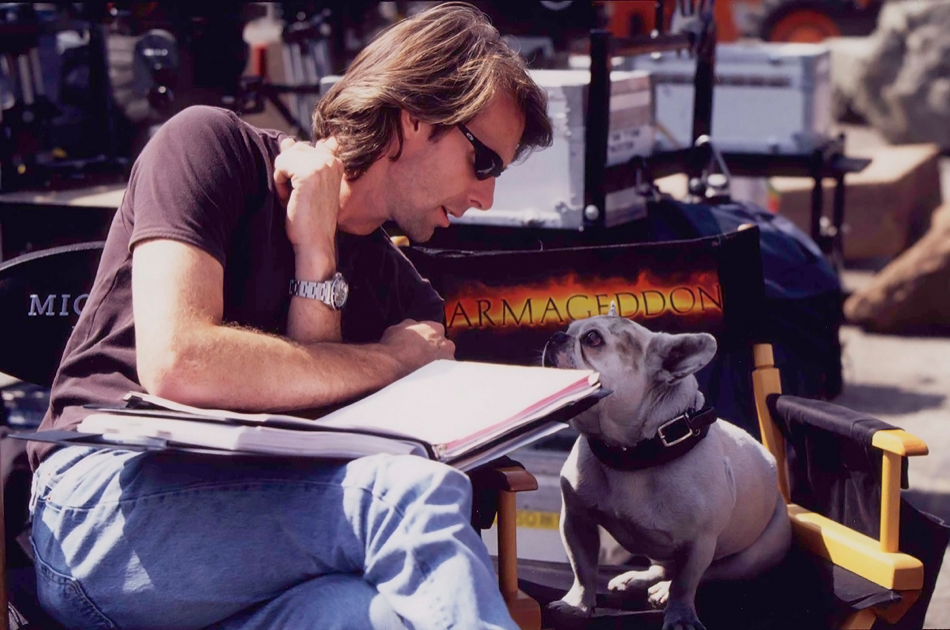
“Before time began, there was… the Cube.”
What remains an enduring enigma of Michael Bay is, I think, his ability not to give a crap about his image, or at least, the public perception of his image. I mentioned before the fact he’d lampooned his action-man image in several commercials, the most famous one being, of course, the Verizon Fios spot, where he excitedly blows up various items around his home to the proclamation that everything is “awesome”, a rather cool skewering of his on-set demeanor. Bay has often been the subject of ridicule and humor, much of it good natured. The sign of a great director is one who doesn’t take himself too seriously. Like Scorcese in his AMEX commercials. Bay, more than perhaps any director today, is one of those who enjoys a good laugh at himself. Which makes his attitude on a films set hard to understand.
I know, you’re going to argue that being a director on a major Hollywood film is a high-stress job, and if the director gets snappy at times, that’s understandable. After all, you’re dealing with millions of dollars of a studios money, and they’re going to be pissed if you screw up. And the buck stops with the director. So if an actor get’s stroppy, or a lighting grip walks around behind the camera and into Christian Bale’s sight line, then the director takes the blame when costs escalate. Bay is famous for his short temper on-set, dealing with the myriad cast and crew he must accommodate into his time, although it would seem he prudently chooses crew members who have a brain in their heads. With film being such a group effort, even though the Director has such a dictatorial role in the production, you at least want your second unit or effects unit to be able to work relatively independent of the main unit. The last thing you want as a director is to have to molly-coddle the second unit because they don’t know what you’re after.
Bay, at least, has built up a crew he takes from film to film that a) know how he works, and b) get the job done. Which means he can accommodate a more fluid shoot. Anybody watching the supplemental footage on the DVD of a Bay film might think that the director is a screaming asshole: but as he himself says, he makes no apologies for coming to the set to work and get the job done, not simply stand about basking in his own glory or anybody elses. People not working on his set quickly get told what’s what. It’s this attitude which most likely put the noses out of joint for those used to a more traditional Hollywood set where “stars” peccadilloes are accommodated to the detriment of the film itself. The Hollywood syndrome is such a pervasive problem within the industry that I’m surprised that anything gets done anyway: so many giant egos to soothe and cuddle, from yippy stars and starlets, to creative powerhouses like David Fincher, James Cameron and others, where everybody wants to feather their own nest. It takes a strong personality to direct a Hollywood film successfully, and those who aren’t, don’t. Directors think they’re God, actors wish they could direct, and the key grip thinks that if he wasn’t there, the whole film would fall apart! Michael Bay remains one of the more honest filmmakers these days, as I mentioned before, he’s quite able to give you his honest opinion on something. Take, for instance, the following quote, as written on Bay’s own website:
“On set, I am not the demon some people make me out to be. I like cracking a good joke and I get a kick when people make fun of me — because at times I can be an asshole, though I never make a personal attack on someone. Crews know that they will have to work their asses of with me, but they know that we will all be proud of the end result. That’s why the director’s role is so important. We are the guiding lights. The same crew could shoot another commercial and for whatever reason it could be totally lackluster.”
Even if you don’t agree with what he thinks, you at least know where you stand with him.
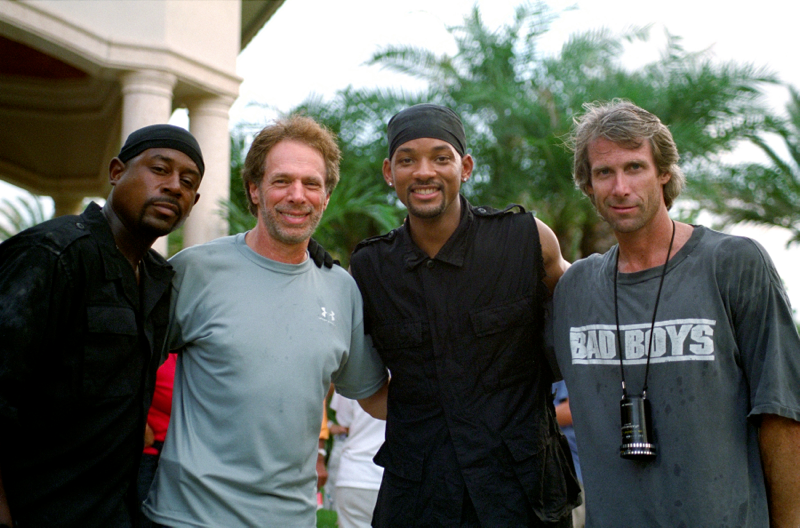
Bay has more recently come under the control of auspicious producer-director Steven Spielberg, since Spielberg is listed as producer on the Transformers films. This came as great news to the majority of Transformers fans, since they believed that Spielberg’s influence on Bay’s somewhat extravagant filmmaking style would only serve to make the film better. Unlike the exuberant Jerry Bruckheimer, whose film extravagance ensured Bay made films like Pearl Harbor with little restraint, Spielberg’s cinematic nous would ensure that the excess would be somewhat curtailed. Spielberg’s influence was surely felt in Transformers, a battle-hardened film in which every spare cent of the budget was squarely up on screen.
For me, I think Transformers represents (to date) Bays best work. Revenge Of The Fallen, while a bigger budget spectacle, lacked the taut pacing and influence of Spielberg on it’s bloated, toy-manufacturer mentality, and consequently is perhaps the least approachable of all Bays films. Which is a shame, because the premise is one that lends itself to reinvention and excitement: Revenge failed to deliver what it should have, although it did bring us more of Bay’s oft-quoted explanation “giant f***ing robots fighting”, to wit, perhaps more focus on this instead of story predicated such a diabolically plotted film. In any case, the Bay-Spielberg wunderkind pairing seemed to fall apart in the Transformers sequel. Paramount, the studio behind the Transformers franchise, might very well have indicated to Bay and his team that they wanted more marketable characters in the sequel, considering the brain-busting amount of money the first film generated.
“You have failed me yet again, Starscream.”
I make no secret that I like Michael Bay’s films; in fact, a couple of them I absolutely love. I have tried to be as fair as possible with this article in terms of my critical analysis, putting aside my obvious action-bias to Bay’s cinematic style. Admittedly, I liked Pearl Harbor as much as the rest of the world, and could smile the cheeky smile at Team America‘s musical lampooning of his film. I found a lot to dislike in Bad Boys 2, but then, there was some stuff that made me smile. Bay is not a director who will go down as a superstar like Spielberg, Cameron, or Jackson, Scorcese or Coppola. In fact, there’s many in Hollywood who probably wish Bay would vanish from the industry as quickly as he appeared. I, however, enjoy his films. And obviously others do to, otherwise his films wouldn’t be as successful as they otherwise are. His film consistently rake in staggering amounts of cash, and while “critics” of note may deride his product as nothing short of inane, contemptible cinematic trash, I enjoy what the man does, and will continue to do so. Anybody capable of making Armageddon and Transformers deserves my time.
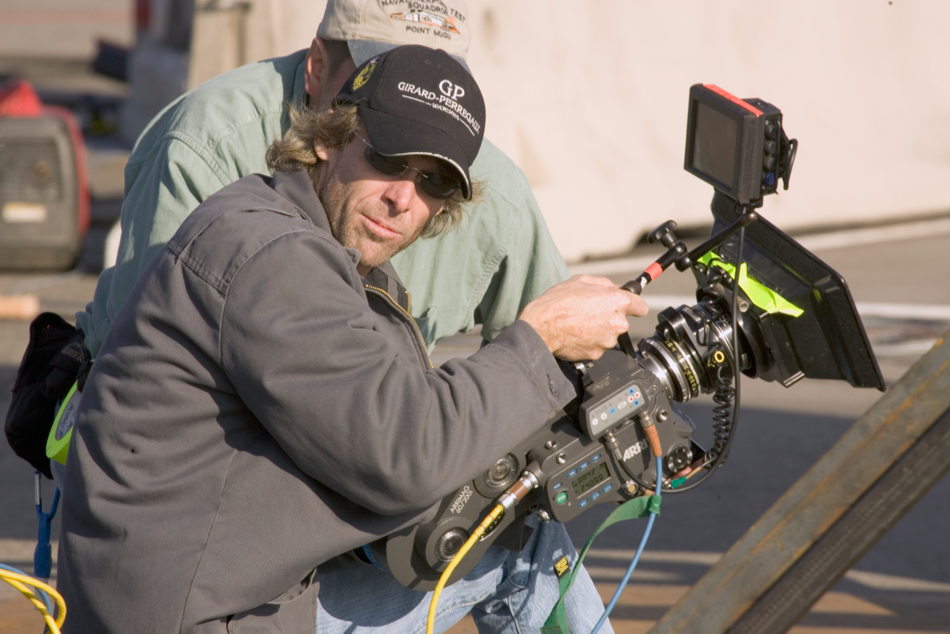
Images within this article taken from Michael Bay’s official website: michaelbay.com
Used without permission.

Wow. All I can say is Wow. That has to be hands down one of the most exacting accounts of a filmmaker I've seen in quite some time. I've only scratched the surface but I had to say thanks Rodney for such an in-depth coverage of Mr. Bay. I can't agree more that he is probably one of the most berated, under appreciated filmmaker working in the business today. His talent for action is rarely equaled and besides that, he's having a helluva time doing it and it shows. Sure, there are problems as you point out with logic and story, with his typical man-child approach to romance, relationships and emotionally rounded characters. He doesn't spend a lot of time working on three-dimensional personalities any more than he strays too far from archetypes meant more to convey roles like hero and villain – so what if he loses sight of plausible and that carnage equates to conventional wisdom. He puts you in the rocket seat, straps you in and gives you a roller coaster ride and generally speaking, he makes the most of whatever story construct he's using – giant robots that turn into things, cool lets put the camera in there and see what it feels like to explode. I think the best advice for Bay naysayers is to check reason and expectation at the door, have a Coke and some pop corn already and escape for a little while. It's OK. I'll be back after reading the rest of your post Rodney. Good work!
Thanks Rory, glad you are enjoying my work! Whenever I watch a Bay film, I always check my reason and expectation at the door. I am still critical of his work, but I'm less inclined to feel gypped by my cinematic experience.
http://themoviebros.com/2010/07/20/top-5-worst-di…
This, of course, is a matter of opinion, but I'm hard pressed to disagree with you!!!
Interesting article!
Did you agree with me, or disagree?